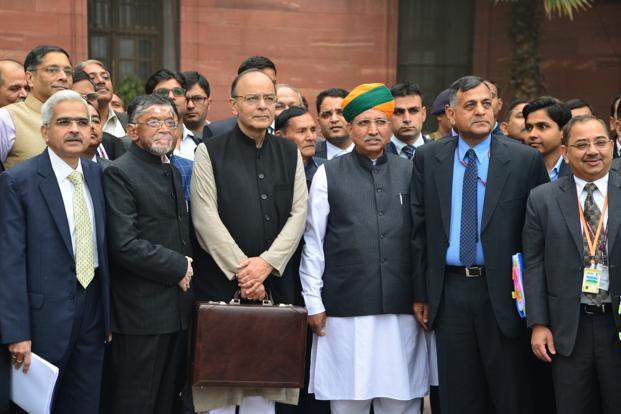Amidst much chaos and expectations the Union Budget for 2017-18 was finally brought out in the open by honourable Finance Minister Arun Jaitley. This also marked the minister’s fourth annual budget presentation. All eyes and ears were on this budget, as the same was looked upon as the determining pivot on which the future of the Indian economy depended post the Demonitisation drive undertaken by the PM Narendra Modi, on 8th November 2016. While the budget this time was surely historic in many ways, one being the same getting announced quite ahead of time, the other of course was Demonetisation.
Counting in the legitimate demands and keeping in mind the future of India and its economy in mind, the Government has certainly focused more on the growing pillars of the emerging economy, that includes giving special attention to the underprivileged, backward and the rural segments. The Budget has certainly understood the importance of the hard working middle class professionals and the small turnover businesses.
Transparency was the key USP of the budget presented by the BJP government in its fourth year. From curbing corruption at every scale to unburdening the honest hard working masses, the budget surely was a historic breather of the Indian population. Also this was the first time since Independence that the Union budget combined the Railway budget too and was presented along with the earlier today during the Parliamentary session.
Creating a smooth education backbone backed by smooth skill developments, the Government has also opened doors to increase employment in the country. Medium and small enterprises provide maximum employment. 2.85 lakh companies making a profit of less than Rs 1 crore. For MSME companies, income tax reduced to 25% if turnover is less than Rs 50 crore. 96% of India’s companies will get this benefit of 5% tax reduction. In order to promote the Make In India initiative further and push India ahead in the Ease of Doing platform, this budget eased out the corners and have brought in a considerable change in Custom Duties of several items, including Customs duty of LNG being halved to 2.5%.
Also to benefit the retail market and to assist the brands on the investment front, FIPB has been declared to be abolished, which in turn will further the liberalisation of the FDI policy. This Budget based on 3 agenda — Transform, Energise, Clean India (TECIndia), also gave us a clear projection that there will be a sure progress in the GDP of India owing to the tectonic changes that the country has overcome and witnessed through the last few months of stringent alterations. The budget presented by the FM was focussed on boosting and imparting holistic economic growth and hence to a greater extent this was a good budget. The finance minister has been to spend more in rural areas, infrastructure, and poverty alleviation and yet maintain the best standards of fiscal prudence.
Keeping the foreign investor confidence high, the Finance Minister left the long-term capital gains tax on equity investment, STT and other taxes untouched, tweaked domestic transfer pricing rules and exempted some FPIs from indirect transfer provision. He also further clarified the GAAR rules. As for the Textile and Apparel industry, in June 2016, the government had already approved a Rs 6,000-crore special package for the textiles and apparel sector to create one crore new jobs in 3 years, and attract investments of US $11 billion and generating US $30 billion in exports. This package has certainly been of great importance as insipred from the same, a similar package has been proposed for the Footwear and Leather industry in this budget. Also in order to bring in Legislative reforms to be undertaken to Simplify, Rationalize and Amalgamate the existing Labour Laws, FM Arun Jaitley while presenting the General Budget 2017-18 in Parliament today said that the Government is keen on fostering a conducive labour environment wherein labour rights are protected and harmonious labour relations lead to higher productivity. Legislative reforms will be undertaken to refine the existing labour laws into 4 Codes on (i) wages; (ii) industrial relations; (iii) social security and welfare; and (iv) safety and working conditions.
The Finance Minister Shri Jaitley further said that the Model Shops and Establishment Bill 2016 has been circulated to all States for consideration and adoption. This would open-up additional avenues for employment of women. The amendment made to the Payment of Wages Act, is another initiative of our Government for the benefit of the labour and ease of doing business.















